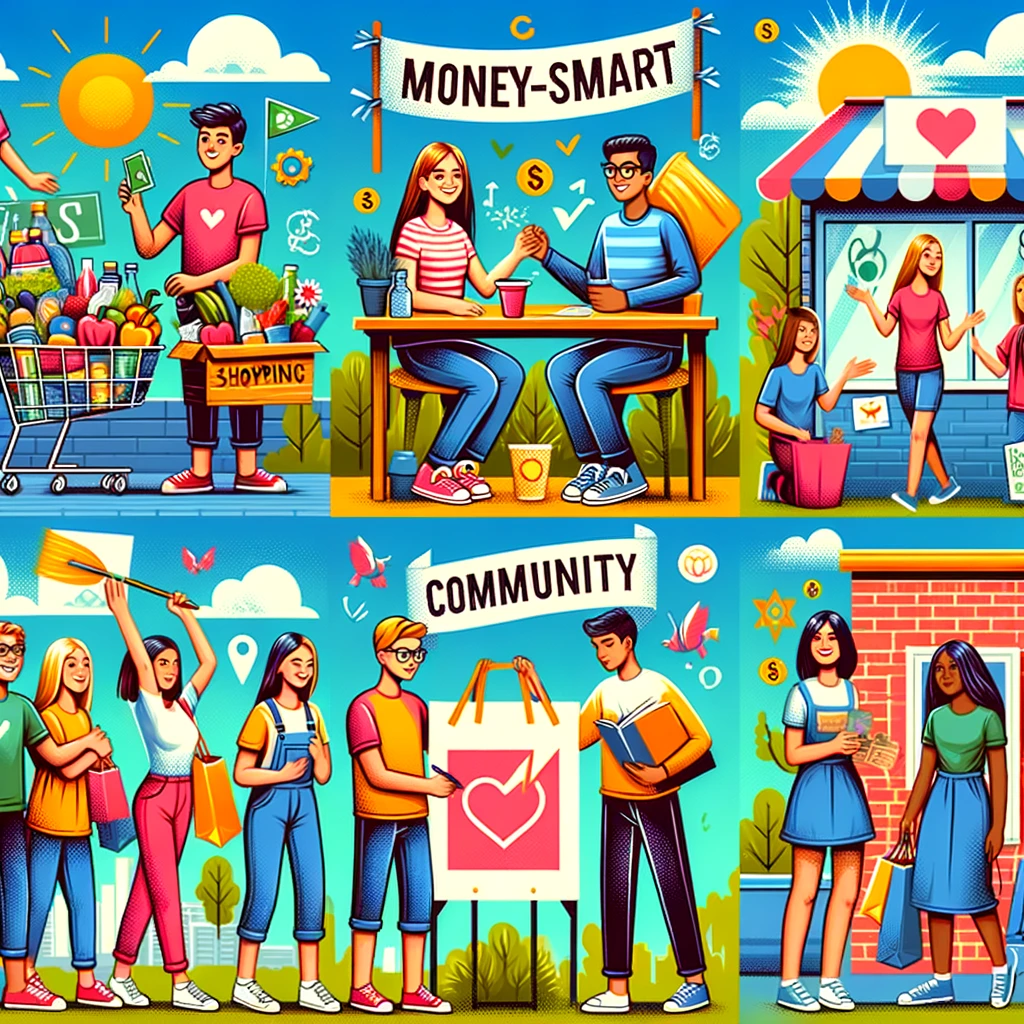A Guide for Teens

In a world where financial decisions impact not just our wallets but also the world around us, being money-smart involves more than just saving and spending wisely—it’s about making choices that benefit our communities as well. Here’s how you, as a teenager, can contribute to your community’s well-being through smart financial habits.
1. Support Local Businesses
When you choose to spend your money at local shops and restaurants, you’re doing more than just buying a product or a meal; you’re investing in your community. Local businesses often source their goods and services from other local companies, creating a cycle of support that helps your community thrive. Plus, these businesses contribute to the local identity and vitality of your neighborhood.
2. Volunteer Your Time
Being money-smart isn’t always about the cash you spend; it’s also about how you use your time. Volunteering for local charities, non-profits, or community groups doesn’t cost a dime but can make a significant impact. Whether it’s helping out at a food bank, cleaning up a local park, or tutoring younger students, your time is a valuable asset that can contribute to the common good.
3. Participate in Fundraisers and Charity Events
Attending or organizing fundraisers and charity events is a fantastic way to be money-smart and community-focused. Not only do these events raise funds for worthy causes, but they also bring people together for a common purpose. Consider participating in charity runs, bake sales, or community auctions as ways to contribute financially while also engaging with your neighbors.
4. Be a Conscious Consumer
Every purchase you make sends a message about the values you support. Being a conscious consumer means thinking about the impact of your buying decisions on the environment, the economy, and society. Opt for products that are ethically sourced, environmentally friendly, or socially responsible. Even small changes, like using a reusable water bottle or shopping bag, can make a difference.
5. Educate Yourself and Others
Knowledge is power, especially when it comes to financial literacy. Take the time to learn about personal finance, and share what you learn with friends and family. Understanding how to manage money, invest wisely, and make informed financial decisions can benefit everyone in your community. Schools, libraries, and community centers often offer workshops or resources on financial literacy—take advantage of these opportunities.
6. Advocate for Financial Education
If your school doesn’t already offer classes on financial literacy, advocate for them. Financial education is crucial for empowering young people to make informed decisions about money. You can start a petition, write to your school board, or organize a group of students to request that financial literacy be included in the curriculum.
7. Wrapping Up
Being money-smart in your community means making thoughtful decisions that not only benefit you personally but also contribute to the well-being of those around you. By supporting local businesses, volunteering your time, participating in fundraisers, being a conscious consumer, and advocating for financial education, you can make a meaningful impact. Remember, even as a teenager, you have the power to inspire change and make a positive difference in your community.
